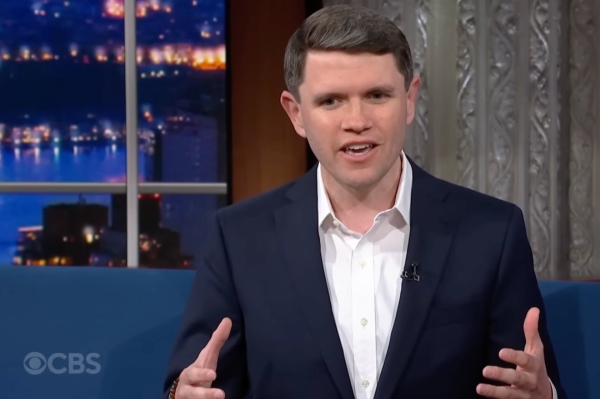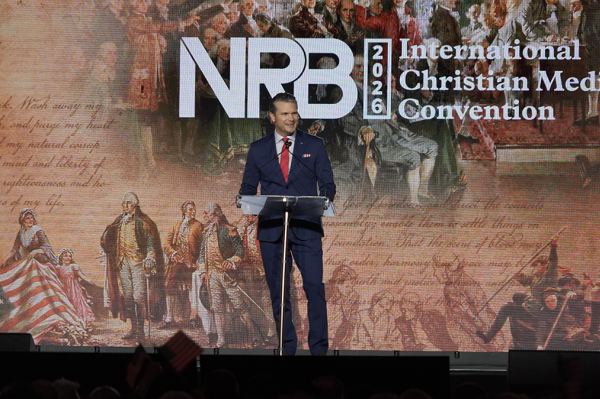America Needs Revival, Revolution, Rebirth, in That Order, Authors Say (Part 1)
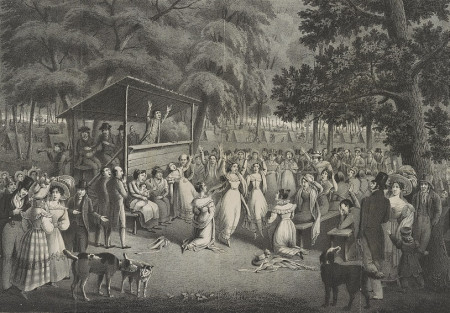
God is at the core of America's founding political documents, says Pastor Wallace Henley and former politician Tom DeLay in their new book, Revival! Revolution! and Rebirth! which is part personal story, part American history, and part policy prescription grounded in the Judeo-Christian worldview.
Henley, who's the senior associate pastor at Second Baptist Church in Houston, Texas, where he has served for 14 years, is a former domestic policy adviser in the Nixon White House. DeLay, his co-author, served the 22nd district of Texas in the U.S. House of Representatives from 1985-2006, and was majority leader from 2003-2005.
In back-to-back interviews with The Christian Post last week, Henley and DeLay discussed their book, Revival! Revolution Rebirth!
The following is an edited transcript of CP's part one interview with Henley, which will be followed by part two, an interview with DeLay.
CP: What gave you the vision for Revival! Revolution! Rebirth! and what propelled you to write it?
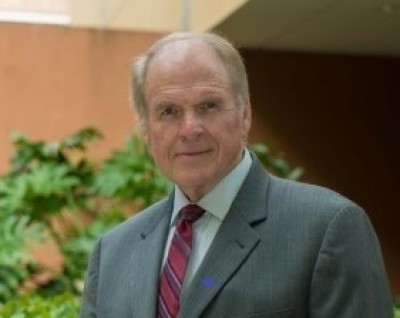
Henley: The vision was initially Tom's and he got it when he was attending a conference in Oregon. He knew he needed a co-writer who understood the political sphere, who knew how to link that with biblical principles and political philosophy. As we talked with a mutual friend we realized that what had happened in Tom's life was sort of an illustration on a miniature scale of what needs to happen to the nation, and in fact was the very process that led of the birth of America almost 300 years ago.
It dates back to 1740-1760 periods when the Great Awakenings were happening and that set the foundational worldview in place, and in some senses reached back into the vision of the pilgrims for a City on the Hill, something that would manifest and reflect the Kingdom of God.
Tom was brought to a point where he was brought close to the Lord. Congressman Frank Wolf had ministered to him and Tom gave his life to Christ back in 1985, and out of that revival in his own life his worldview was revolutionized. Out of that came this wonderful rebirth into the Kingdom of God, a rebirth of a vision he'd only known a little about. I went through a similar process of Tom being awakened to the lordship of Jesus Christ and the importance of a Judeo-Christian worldview in the formation of our nation.
The nation went through that same process. The Great Awakenings launched a new wave in the pulpits and especially Deuteronomy regarding the quality of life and society and its essential worldview. That then informed the Founders, and we quote extensively how the founders were impacted by this ethos and this Judeo-Christian worldview that permeated the other colonies and how that got into our Constitution.
CP: When we think of "revival" the precursor in Scripture is always repentance. Many believe that America has a lot of repenting to do. As as pastor, could you speak to the necessity of repentance and its implications, and how is that reflected in your book?
Henley: The core message of our book in terms of the government is "God is at the core of the Constitution and the Constitution must be the core of governance." And the same thing would be true in our lives. We detail extensively a cycle that we have observed, especially in God's dealings with Israel — not to suggest that the United States is Israel — but we see a cycle that works here.
It began with a period of ratification, when everybody is together about their belief in God. I mean, in our history, Franklin D. Roosevelt led the nation in prayer on the radio as the Normandy invasion was taking place. So there's this huge consensus that God's got to be at the center.
And there's a stage where there's a relapse of memory. In the Scriptures it says that when Joshua and his generation died people forgot God, in effect, moving away from that ratification.
The next is rebellion. When you forget God and you forget His ways then you rebel. America has been on that track very intensely since the 1960s with some exceptions.
Then comes the refiners fire and when the consequences of that rebellion come down on us, and we've experienced those very intensely. The '60s was a time of upheaval, the '70s was a time of deepening our philosophical rebellion from God, and the '80s we begin to experience the consequences, intensifying in the '90s.
But then comes remembrance, and someone asks, "What went wrong? Something is off track!"
After that comes repentance. There's got to be an act of metanoia, a turning back.
How does a nation repent? Well, 100 percent of the nation is not going to repent, but when the remnant community, which is the core of the spiritual heart of the nation, when that remnant community awakens to repentance it radiates to others and others pick up the theme across the culture.
When that occurs, that's when revival really strikes.
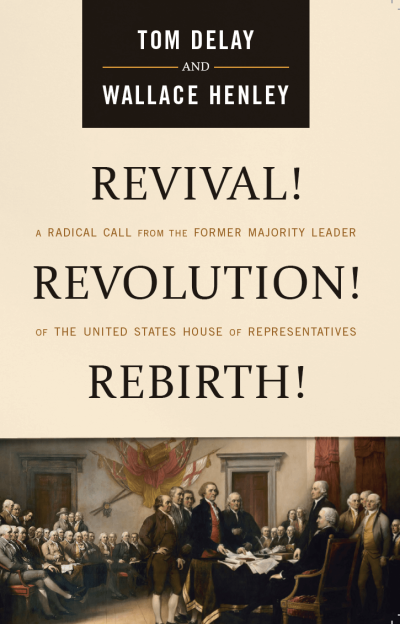
CP: The tumultuous 1960s did not emerge out of nowhere. What, in your view, was the impetus for so much rebellion against God in the United States?
Henley: It was a loss of the sense of God's transcendence. Just go back to Eden: "You shall be as gods." It was the enthronement of the self in the place of God so that we ourselves became in our own minds — even in branches of the church — the supreme arbiters of what is true. And this was expressed in relativism: "What's right for you, is not necessarily right for me."
Our Founders understood the transcendence of God. However, many of them pushed transcendence too far such that they had this deity who was so remote that He was unreachable; that was the extreme of deism. And it led in the 1960s to the so-called "God is Dead" movement.
When I was a newspaper reporter I actually interviewed Thomas J. J. Altizer, the prime prophet of that movement and I asked him: "Do you mean that God has biologically died?" He said, "Oh no, what I simply mean is that God has given us the world and withdrew to the point that He may as well be dead."
CP: In terms of American history, how can you support your book's central thesis that "God was at the core" of the American founding given our dark past, particularly our 'birth defect,' as some have called it, of slavery?
Henley: "God at the core" meant that in a moment of utter honesty you have Thomas Jefferson, who had many slaves, saying, "I tremble when I remember that God is just and that His justice cannot sleep forever."
So there is this sense of God who will demand some accountability. And the DNA of the constitutional view guaranteed the death of slavery. It took a while for it to work out but finally people began to realize that if indeed our Creator has endowed us with certain unalienable rights, among these are life, liberty, and the pursuit of happiness, how on Earth can we dip to the level, for example, of the Dred Scott decision? Abraham Lincoln would not even enforce the Dred Scott decision that declared a human being a piece of chattel, a piece of property.
So consequently, it was the continual working of that worldview that was like the chemo attacking that cancer. Again, it's only when we've forgotten the transcendence of God for everybody, including the rulers, that we fall into those traps. So I would say that our point in our book is well taken, that God must be acknowledged as the core. It's the acknowledgment of God and what the worldview implies in all of its ways.
CP: Your book also offers a number of policy prescriptions that are in keeping with the Judeo-Christian principles, including proposals to reform tax laws. How do these principles and worldview based in an ancient near eastern text speak to something as complicated as the tax code in modern, 21st century America?
Henley: Well, we talk about the way ancient Israel was taxed. People might say, "Well, that's not relevant for us." But it is amazingly relevant because everything was to be regulated in the context of the tithe. We are not required to give more to the nation than God specifies for Himself.
But moreover, and this is one of the awakenings I had as a young man in the Nixon White house, there is in the midst of all the domestic policy complexities a reference point beyond mere pragmatics. That reference point is that established absolute truth. If physicists can talk about absolute time and absolute laws certainly these also occur in the social, philosophical and spiritual realms. So it's only logical.










